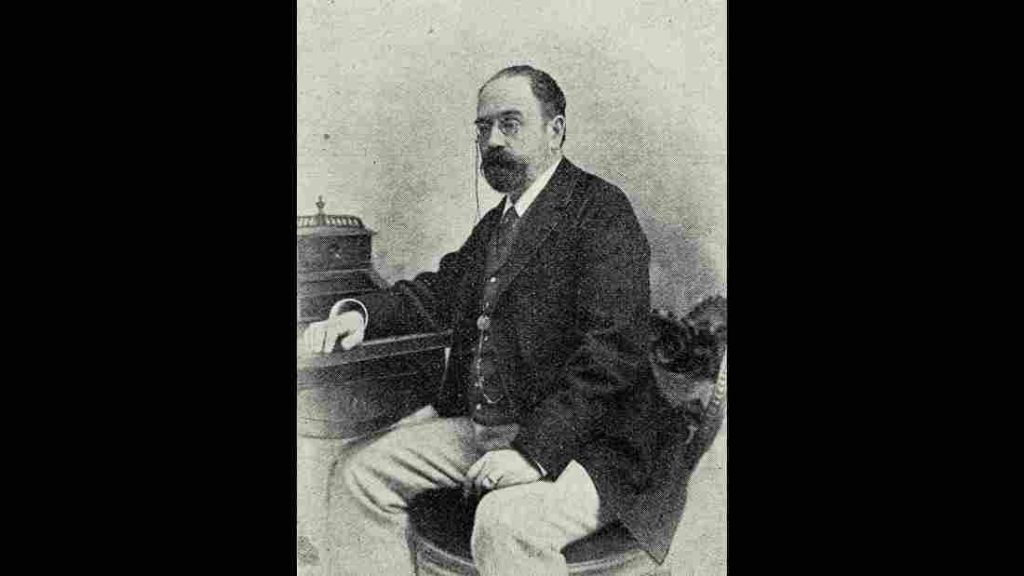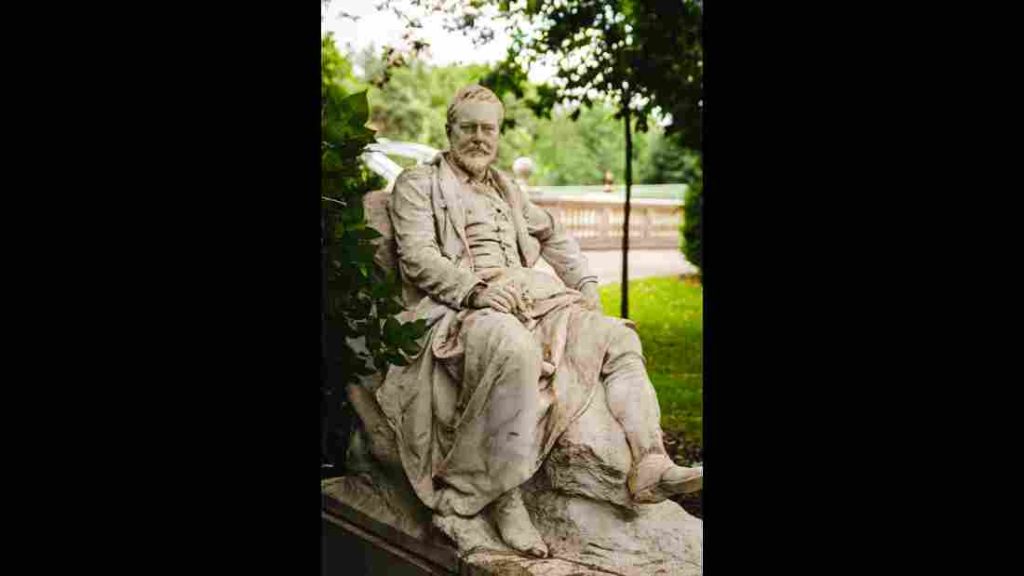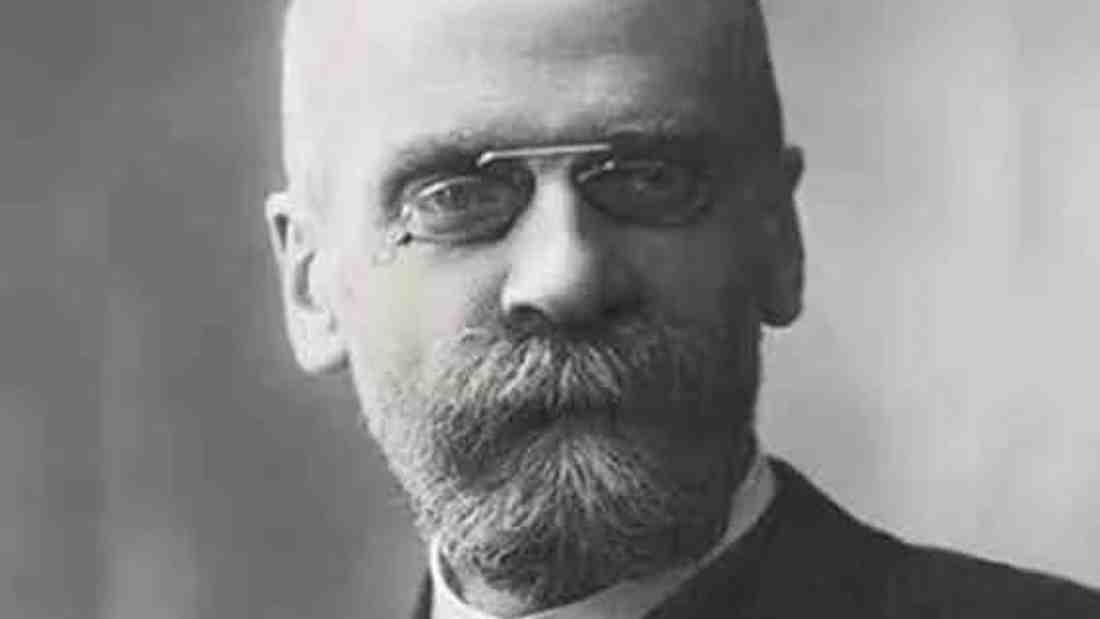Émile Durkheim is widely regarded as the father of sociology. He was a French sociologist and philosopher who lived from 1858 to 1917. Durkheim’s work had a significant impact on the development of sociology as a discipline, particularly in France, where he helped establish it as an academic field. In addition to his contributions to sociology, Durkheim also made important contributions to anthropology, particularly in the study of religion. His ideas continue to influence contemporary research in both fields today.
In this blog post, we will take a closer look at his life and work, and explore some of his most important ideas.
Émile Durkheim – early life and education
Émile Durkheim was born into a Jewish family in Épinal, France, in 1858. He was the son of a rabbi and grew up in a religious household. Despite his upbringing, Durkheim eventually became an agnostic.
Durkheim’s early education was focused on Jewish studies. He attended a rabbinical school before enrolling in the prestigious École Normale Supérieure in Paris, where he studied philosophy and sociology.
It was during his time at École Normale Supérieure that Durkheim developed an interest in sociology and anthropology. He was particularly influenced by the work of Auguste Comte. Durkheim saw sociology as a way to understand society scientifically, much like physics or biology.
After completing his studies, Émile Durkheim began teaching at various universities in France. He eventually became a professor of social science at the University of Bordeaux, where he spent most of his career.
Career in Academia
Durkheim’s career in academia spanned several decades, during which he held positions at various universities in France. He began teaching at the University of Bordeaux in 1887 and remained there until his death in 1917.
In 1897, Émile Durkheim was appointed to the chair of sociology at the University of Paris. He remained there until his death in 1917. Over the course of his career, Durkheim developed a number of key concepts that still play a central role in sociology today. These include the idea of social solidarity, the concept of anomie, and the theory of functionalism.
One of Durkheim’s most notable publications was “The Division of Labor in Society,” which was published in 1893. In this book, Durkheim argued that the division of labor is a fundamental aspect of society, and that it has important implications for social solidarity. This work helped establish Durkheim as one of the leading sociologists of his time.
Another influential publication by Durkheim was “On Suicide,” which was published in 1897. In this book, Durkheim analyzed suicide rates across different societies and identified several social factors that contribute to suicide. This work had a significant impact on the field of sociology and remains an important contribution to the study of suicide today.
Émile Durkheim also made important contributions to the study of religion. His book “The Elementary Forms of Religious Life,” which was published in 1912, is considered a classic work in anthropology. In this book, Durkheim argued that religion serves as a means for creating social solidarity, and that it reflects the values and beliefs of a particular society.

Durkheim’s Contributions to Sociology
Émile Durkheim’s work in anthropology was particularly significant. He was one of the first scholars to apply sociological methods to the study of human culture and society. His book The Rules of Sociological Method is still considered a classic in the field.
Durkheim developed several key concepts that are still widely used in sociology today. Three of his most important concepts are social solidarity, collective consciousness, and anomie.
These concepts continue to be influential in contemporary sociology and have been used by scholars to understand topics ranging from crime and deviance to globalization and social change.
Social Solidarity
Durkheim’s concept of social solidarity is a key component of his theory of social order. He argued that social solidarity is necessary for the functioning of society, as it provides individuals with a sense of connection and belonging that allows them to work together towards common goals.
Mechanical solidarity, also known as “segmental” or “traditional” solidarity, is based on similarities between individuals within a society. In societies with mechanical solidarity, individuals share similar beliefs and values, and there is little division of labour or specialization. Examples of societies with mechanical solidarity include small-scale traditional societies, such as hunter-gatherer groups.
Organic solidarity, on the other hand, is based on interdependence between individuals with different roles within a complex division of labour. In societies with organic solidarity, individuals have specialized roles and are dependent on one another to meet their needs. Examples of societies with organic solidarity include modern industrial societies.
Durkheim argued that the shift from mechanical to organic solidarity was an important feature of social change in modern societies. As societies become more complex and specialized, they require greater levels of interdependence between individuals. However, this can also lead to feelings of anomie or disconnection if individuals do not feel connected to each other in meaningful ways.
Durkheim’s concept of social solidarity remains an important tool for understanding how societies function and how individuals relate to one another within those societies.
Collective Consciousness
Durkheim’s concept of collective consciousness is another key component of his theory of social order. He argued that collective consciousness refers to the shared beliefs, values, and attitudes that are held by members of a society and that these shared beliefs form the basis for social cohesion.
According to Durkheim, collective consciousness is created through the process of socialization. Individuals learn the norms and values of their society through interaction with others and internalize these norms as part of their own sense of self. This process creates a sense of commonality and shared identity among individuals within a society.
Collective consciousness reflects the moral standards of a particular society because it defines what is considered acceptable behavior within that society. It provides individuals with a sense of right and wrong and helps to regulate behavior by creating expectations for how individuals should act in various situations.
Durkheim believed that changes in collective consciousness could be indicative of broader changes in society. For example, he argued that shifts in religious belief systems could reflect broader changes in societal values and norms.
Durkheim’s concept of collective consciousness highlights the importance of shared beliefs and values for maintaining social order within a society. It emphasizes the role that socialization plays in shaping individual behaviour and highlights how changes in societal values can have far-reaching implications for individuals within that society
Anomie
Émile Durkheim argued that anomie can lead to deviant behavior and even suicide if individuals feel disconnected from society. When individuals are no longer bound by the moral standards of their society, they may feel lost or adrift, without a sense of purpose or direction. This can lead to feelings of hopelessness and despair, which can ultimately result in self-destructive behaviors like substance abuse or suicide.
Anomie is often associated with periods of rapid social change, such as during times of economic upheaval or war. In these contexts, traditional norms and values may break down, leaving individuals feeling uncertain about their place in society and their role within it.
Durkheim believed that one way to address anomie was through the creation of new social institutions and rituals that could provide individuals with a sense of connection and belonging. For example, he argued that religious institutions could play an important role in providing individuals with a sense of moral guidance and community.
Durkheim’s concept of anomie highlights the importance of social integration for maintaining individual well-being and preventing deviant behaviour. It emphasizes the impact that rapid social change can have on individuals within a society and underscores the need for social institutions to provide stability and support during times of upheaval.
Durkheim’s Contributions to Anthropology
Émile Durkheim’s contributions to the field of anthropology, particularly in the study of religion, have had a lasting impact on anthropological theory.
Durkheim believed that religion played an important role in shaping social order and cohesion within societies. He argued that religious beliefs and practices were not simply individual expressions of faith, but rather were deeply embedded in the collective consciousness of society.
One of his most famous works, “The Elementary Forms of Religious Life,” explored how religion functioned as a social institution and contributed to the maintenance of social order. In this work, he proposed that all religions shared certain fundamental elements, which he called “totems.”
According to Durkheim, totems represented a society’s collective identity and served as symbols that reinforced social bonds between individuals. Through religious rituals and ceremonies, individuals were able to connect with one another and reaffirm their shared values and beliefs.
Durkheim’s ideas about the role of religion in society have had a significant impact on anthropological theory. His emphasis on the importance of social integration and collective consciousness has influenced many subsequent anthropologists who have sought to understand how cultural practices shape individual behavior.
Additionally, his work has highlighted the ways in which religion can be both an expression of individual spirituality and a powerful tool for maintaining social order. By emphasizing the role that religion plays in shaping societal values and norms, Émile Durkheim has helped us better understand how cultural institutions contribute to broader patterns of human behaviour.

Durkheim’s Legacy
Émile Durkheim is widely regarded as one of the founding fathers of modern sociology and anthropology. His groundbreaking work on social order, collective consciousness, and the role of religion in society has had a lasting impact on these fields.
Durkheim’s legacy as a pioneering figure in sociology and anthropology is built upon his innovative approach to studying human behavior. He believed that social phenomena could be studied scientifically, using empirical data to understand how cultural practices shape individual behavior.
His emphasis on the importance of social integration and collective consciousness has influenced generations of sociologists and anthropologists who have sought to understand how societies are organized and maintained. His ideas about the role of religion in society have also been highly influential, with many scholars continuing to explore the ways in which religious beliefs and practices shape cultural identity.
Durkheim’s work has also had a significant impact on contemporary research in these fields. Many current studies continue to build upon his foundational theories, exploring topics such as social inequality, deviance, and collective memory.
Moreover, his focus on empirical research methods has also paved the way for new approaches to studying human behavior. Contemporary researchers continue to use quantitative data analysis techniques to better understand how cultural practices influence individual attitudes and behaviors.
Overall, Durkheim’s legacy as a pioneering figure in sociology and anthropology continues to shape our understanding of human behaviour today. His emphasis on empirical research methods, collective consciousness, and the role of religion in society remain highly influential areas of study for contemporary scholars across both disciplines.
Conclusion
In conclusion, Durkheim’s contributions to sociology and anthropology have left an indelible mark on these fields. His innovative research methods, ground-breaking theories of social order and collective consciousness, and influential ideas about the role of religion in society continue to shape contemporary scholarship.
His legacy as a pioneering figure in these disciplines has inspired generations of scholars to continue exploring the complex relationships between culture, society, and individual behaviour. As we continue to grapple with the challenges of understanding human behaviour in a rapidly changing world, Durkheim’s work remains as relevant today as it was over a century ago.
For Further Reading
Jane Goodall – a pioneering primatologist
Marshall Sahlins (1930 – 2021) – Race is a Social Construct
Saba Mahmood – a strong voice in the anthropology of religion and post-colonialism
Claude Lévi-Strauss’s Structuralism and its Influence on Anthropological Thought
Clifford Geertz – the man who pioneered “thick description” in anthropology
Ruth Benedict: The anthropologist who believed that cultures have personalities
Michael Taussig – Doctor and Anthropologist
Bronislaw Malinowski: The Father of Field Research
Margaret Mead: A Pioneering Anthropologist
Empowering Voices: The Best Quotes from Margaret Mead
Franz Boas: The Father of American Anthropology
Émile Durkheim: The Father of Sociology and His Contributions to Anthropology
The Towering Legacy of Marilyn Strathern in Anthropology
Gayle Rubin and Her Ground-Breaking Contributions to Anthropology and Gender Studies
Unraveling Human Origins: The Paleontological Legacy of Kenneth Oakley
Disclosure: Please note that some of the links in this post are affiliate links. When you use one of my affiliate links, the company compensates me. At no additional cost to you, I’ll earn a commission, which helps me run this blog and keep my in-depth content free of charge for all my readers.


